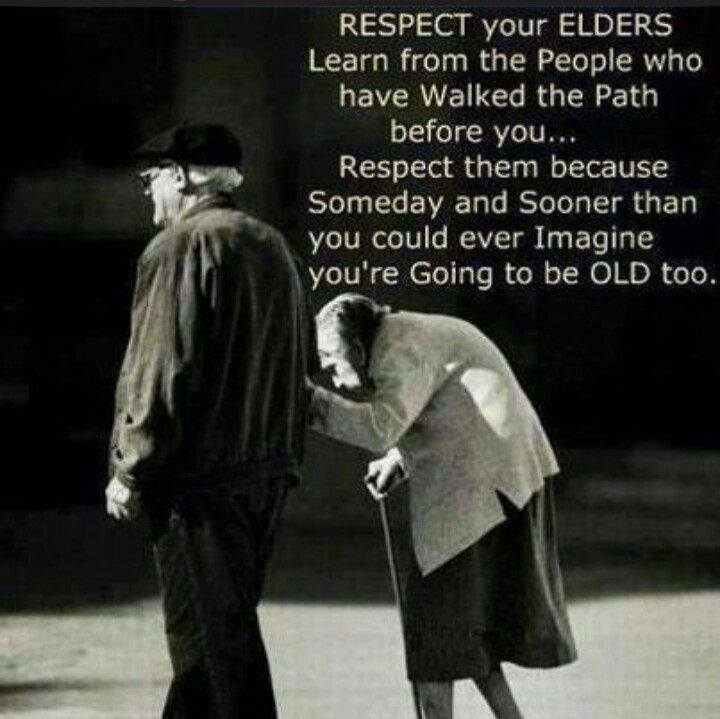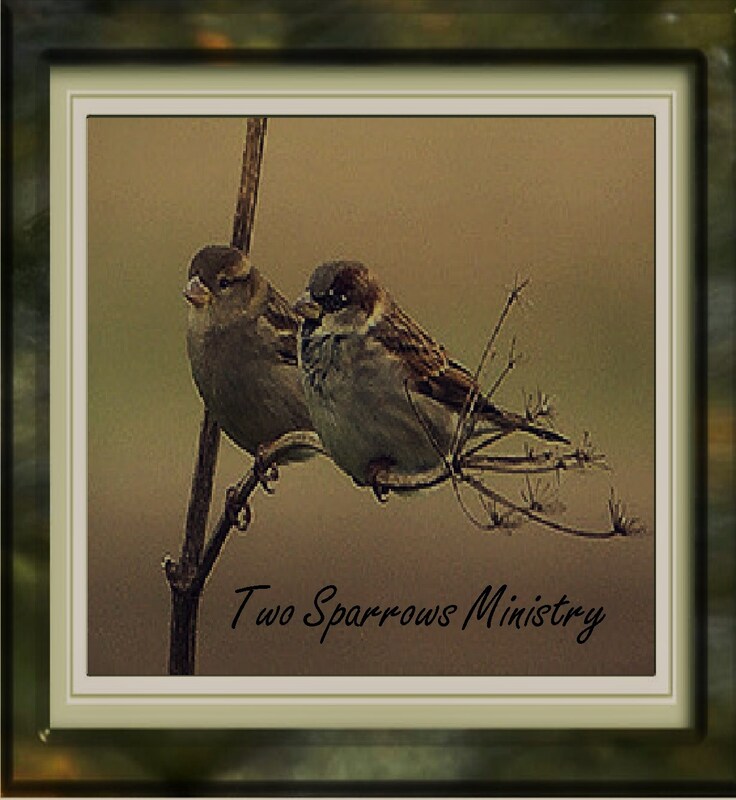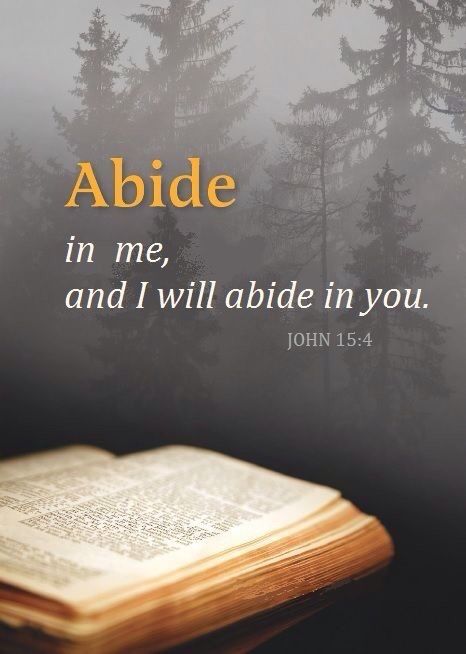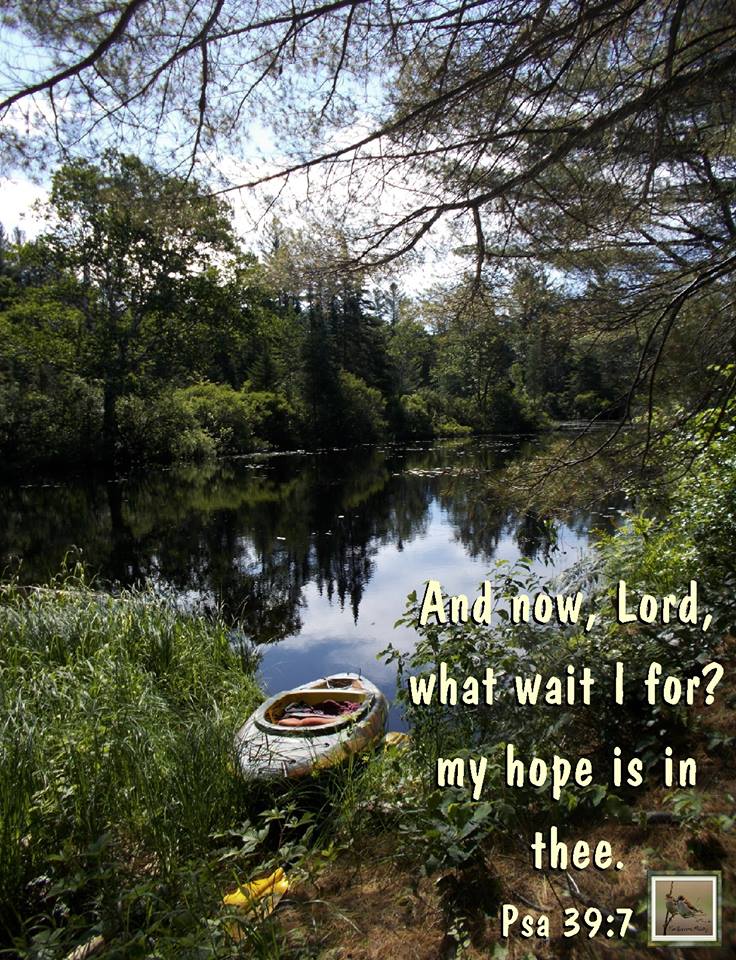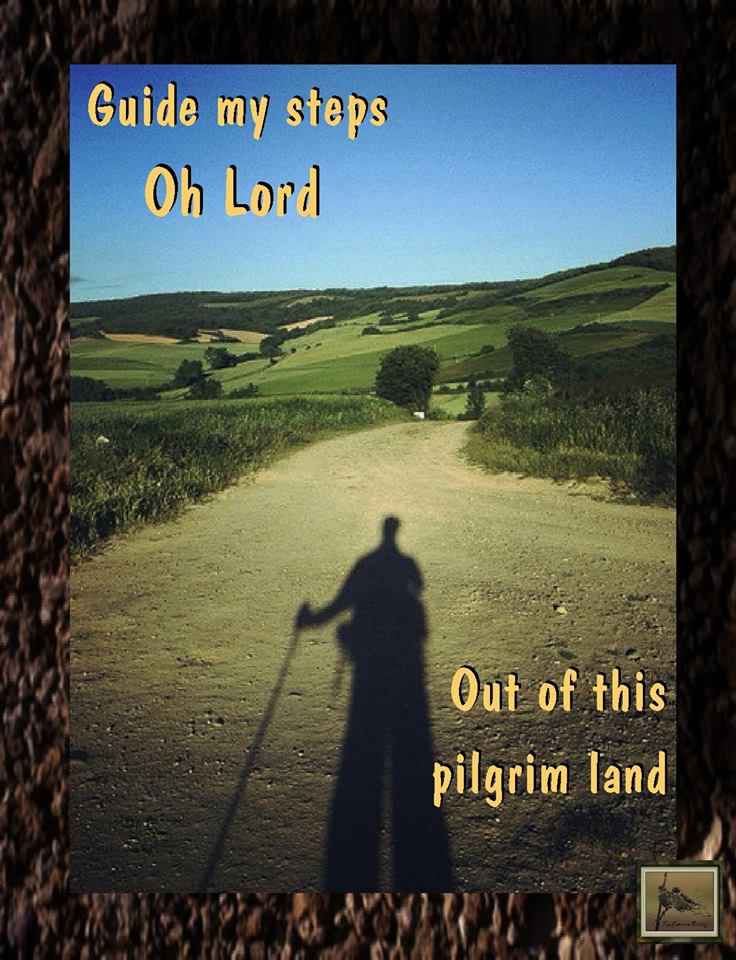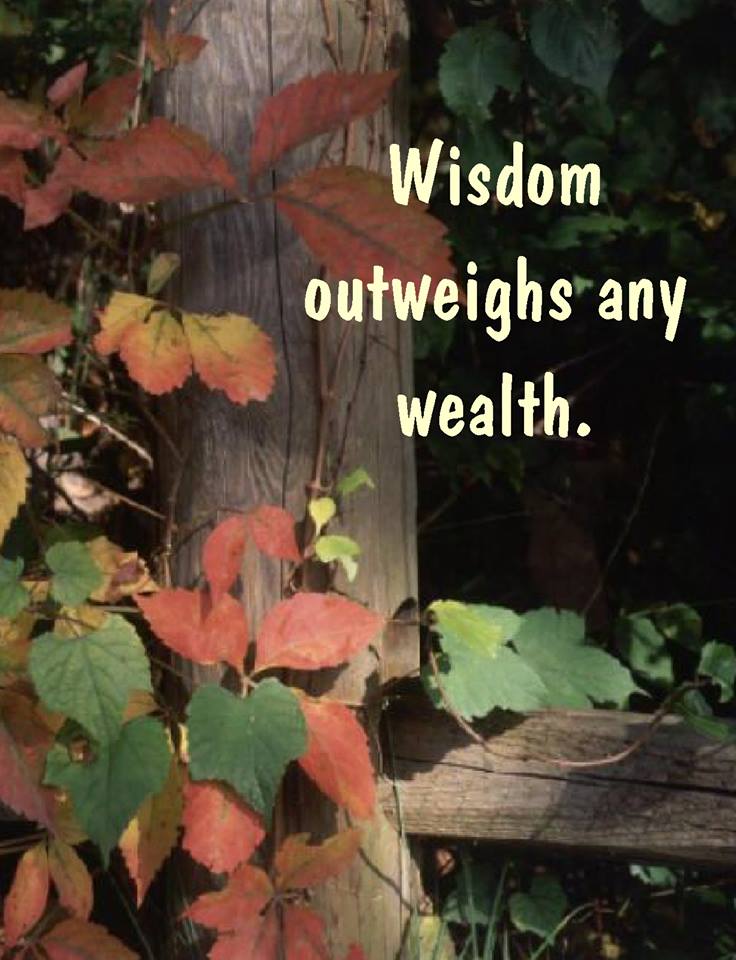For all our days are passed away in thy wrath: we spend our years as a tale that is told.
The days of our years are threescore years and ten; and if by reason of strength they be fourscore years, yet is their strength labour and sorrow; for it is soon cut off, and we fly away. Psa 90:9-10
The days of our years are threescore years and ten; and if by reason of strength they be fourscore years, yet is their strength labour and sorrow; for it is soon cut off, and we fly away. Psa 90:9-10
“For all our days are passed away in thy wrath.” Justice shortened the days of rebellious Israel; each halting place became a graveyard; they marked their march by the tombs they left behind them. Because of the penal sentence their days were dried up, and their lives wasted away. “We spend our years as a tale that is told.” Yea, not their days only, but their years flew by them like a thought, swift as a meditation, rapid and idle as a gossip's story. Sin had cast a shadow over all things, and made the lives of the dying wanderers to be both vain and brief. The first sentence is not intended for believers to quote, as though it applied to themselves, for our days are all passed amid the lovingkindness of the Lord, even as David says in the twenty-third Psalm, “Surely goodness and mercy shall follow me all the days of my life.” Neither is the life of the gracious man unsubstantial as a story-teller's tale; he lives in Jesus, he has the divine Spirit within him, and to him “life is real, life is earnest” - the simile only holds good if we consider that a holy life is rich in interest, full of wonders, chequered with many changes, yet as easily ordered by Providence as the improvisatore arranges the details of the story with which he beguiles the hour. Our lives are illustrations of heavenly goodness, parables of divine wisdom, poems of sacred thought, and records of infinite love; happy are we whose lives are such tales.
Psa_90:10
“The days of our years are threescore years and ten.” Moses himself lived longer than this, but his was the exception not the rule in his day life had come to be very much the same in duration as it is with us. This is brevity itself, compared with the men of the elder time, it is nothing when contrasted with eternity. Yet is life long enough for virtue and piety, and all too long for vice and blasphemy. Moses here in the original writes in a disconnected manner, as if he would set forth the utter insignificance of man's hurried existence. His words may be rendered, “The days of our years! In them seventy years:” as much as to say, “The days of our years? What about them? Are they worth mentioning? The account is utterly insignificant, their full tale is but seventy.” “And if by reason of strength they be fourscore years, yet is their strength labour and sorrow.” The unusual strength which overleaps the bound of threescore and ten only lands the aged man in a region where life is a weariness and a woe. The strength of old age, its very prime and pride, are but labour and sorrow; what must its weakness be? What panting for breath! What toiling to more! What a failing of the senses! What a crushing sense of weakness! The evil days are come and the years wherein a man cries, “I have no pleasure in them.” The grasshopper has become a burden and desire faileth. Such is old age. Yet mellowed by hallowed experience, and solaced by immortal hopes, the latter days of aged Christians are not so much to be pitied as envied. The sun is setting and the heat of the day is over, but sweet is the calm and cool of the eventide; and the fair day melts away, not into a dark and dreary night, but into a glorious, unclouded, eternal day. The mortal fades to make room lot the immortal; the old man falls asleep to wake up in the region of perennial youth. “For it is soon cut off, and we fly away.” The cable is broken and the vessel sails upon the sea of eternity; the chain is snapped and the eagle mounts to its native air above the clouds. Moses mourned for men as he thus sung; and well he might, as all his comrades fell at his side. His words are more nearly rendered, “He drives us fast and we fly away;” as the quails were blown along by the strong west wind, so are men hurried before the tempests of death. To us, however, as believers, the winds are favourable; they bear us as the gales bear the swallows away from the wintry realms, to lands-
“Where everlasting spring abides
And never withering flowers.”
Who wishes it to be otherwise? Wherefore should we linger here? What has this poor world to offer us that we should tarry on its shores? Away, away! This is not our rest. Heavenward, Ho! Let the Lord's winds drive fast it so he ordains, for they watt us the more swiftly to himself, and our own dear country.
C.H. Spurgeon -Treasury of David
Psa_90:10
“The days of our years are threescore years and ten.” Moses himself lived longer than this, but his was the exception not the rule in his day life had come to be very much the same in duration as it is with us. This is brevity itself, compared with the men of the elder time, it is nothing when contrasted with eternity. Yet is life long enough for virtue and piety, and all too long for vice and blasphemy. Moses here in the original writes in a disconnected manner, as if he would set forth the utter insignificance of man's hurried existence. His words may be rendered, “The days of our years! In them seventy years:” as much as to say, “The days of our years? What about them? Are they worth mentioning? The account is utterly insignificant, their full tale is but seventy.” “And if by reason of strength they be fourscore years, yet is their strength labour and sorrow.” The unusual strength which overleaps the bound of threescore and ten only lands the aged man in a region where life is a weariness and a woe. The strength of old age, its very prime and pride, are but labour and sorrow; what must its weakness be? What panting for breath! What toiling to more! What a failing of the senses! What a crushing sense of weakness! The evil days are come and the years wherein a man cries, “I have no pleasure in them.” The grasshopper has become a burden and desire faileth. Such is old age. Yet mellowed by hallowed experience, and solaced by immortal hopes, the latter days of aged Christians are not so much to be pitied as envied. The sun is setting and the heat of the day is over, but sweet is the calm and cool of the eventide; and the fair day melts away, not into a dark and dreary night, but into a glorious, unclouded, eternal day. The mortal fades to make room lot the immortal; the old man falls asleep to wake up in the region of perennial youth. “For it is soon cut off, and we fly away.” The cable is broken and the vessel sails upon the sea of eternity; the chain is snapped and the eagle mounts to its native air above the clouds. Moses mourned for men as he thus sung; and well he might, as all his comrades fell at his side. His words are more nearly rendered, “He drives us fast and we fly away;” as the quails were blown along by the strong west wind, so are men hurried before the tempests of death. To us, however, as believers, the winds are favourable; they bear us as the gales bear the swallows away from the wintry realms, to lands-
“Where everlasting spring abides
And never withering flowers.”
Who wishes it to be otherwise? Wherefore should we linger here? What has this poor world to offer us that we should tarry on its shores? Away, away! This is not our rest. Heavenward, Ho! Let the Lord's winds drive fast it so he ordains, for they watt us the more swiftly to himself, and our own dear country.
C.H. Spurgeon -Treasury of David
“THE END OF THE MATTER”
| This comparison of the human body to a house is extremely beautiful. The inference is obvious that our bodies are not ourselves, but only our tenement. Our sojourn in this world is on a lodger’s tenure. The keepers of the house are, of course, the arms and hands. The grinding is low as in advancing life we lose our teeth. The door is the month, for in age we talk and laugh less, and our lips become compressed. The voice pipes and mutters. The almond tree, with its white blossoms, is, of course, an appropriate symbol of old age. The lamp of life finally falls with a crash on the floor, and the wheel is broken. What, then, is the conclusion of the whole matter? This: that earthly delights are transient; that all this world can offer is an inn for a lodging-it is not our home; that the soul must go forth on its great quest at the hour of death; and that then the one all-important consideration will be, What has been its attitude toward God? Let us love God with the loving fear of grieving Him that casts out the fear which has torment. This is the whole matter; that is the one matter of overshadowing importance. F.B. Meyer |
Resource Links
There is a great deal of information in these blogs, regarding caregiving
and issues of elder abuse, and help in this area
Elder Abuse
There is a great deal of information in these blogs, regarding caregiving
and issues of elder abuse, and help in this area
Elder Abuse
An Overview of Elder Abuse-
https://www.twosparrowsministry.org/home/an-overview-of-elder-abuse
www.twosparrowsministry.org/home/elder-abuse
https://www.twosparrowsministry.org/home/signs-ofelder-abuse-be-watchful
https://www.twosparrowsministry.org/home/lets-get-real
In Sickness and In Health- videos and articles on caregiving
www.twosparrowsministry.org/home/elderly-caregivers-in-sickness-and-in-health
https://www.twosparrowsministry.org/home/helpful-caregiving-tips-at-holiday-times
https://www.twosparrowsministry.org/home/caregiving-skills-and-information
https://www.twosparrowsministry.org/home/palliative-care
https://www.twosparrowsministry.org/home/handling-conflict-in-caregiving
https://www.twosparrowsministry.org/home/answering-difficult-questions-about-aging
https://www.twosparrowsministry.org/home/holiday-survival
https://www.twosparrowsministry.org/home/caregiving-challenges -
www.twosparrowsministry.org/home/at-the-kitchen-table
https://www.twosparrowsministry.org/home/an-overview-of-elder-abuse
www.twosparrowsministry.org/home/elder-abuse
https://www.twosparrowsministry.org/home/signs-ofelder-abuse-be-watchful
https://www.twosparrowsministry.org/home/lets-get-real
In Sickness and In Health- videos and articles on caregiving
www.twosparrowsministry.org/home/elderly-caregivers-in-sickness-and-in-health
https://www.twosparrowsministry.org/home/helpful-caregiving-tips-at-holiday-times
https://www.twosparrowsministry.org/home/caregiving-skills-and-information
https://www.twosparrowsministry.org/home/palliative-care
https://www.twosparrowsministry.org/home/handling-conflict-in-caregiving
https://www.twosparrowsministry.org/home/answering-difficult-questions-about-aging
https://www.twosparrowsministry.org/home/holiday-survival
https://www.twosparrowsministry.org/home/caregiving-challenges -
www.twosparrowsministry.org/home/at-the-kitchen-table
Wisdom
If age doth speak of wisdom learned,
And battles won, and sorrows earned,
Then youth doth boast of hopes to come,
Of strength to waste, and wisdom shunned.
But if youth could seek instead the wise,
and see life through more vintage eyes
And turn to God while still they sow
The seeds of harvest they've yet to know,
They might then be blessed to reap
A bounty they'll delight to keep,
And share with those who come behind
A harvest of a richer kind.
—Vicki Baird
And battles won, and sorrows earned,
Then youth doth boast of hopes to come,
Of strength to waste, and wisdom shunned.
But if youth could seek instead the wise,
and see life through more vintage eyes
And turn to God while still they sow
The seeds of harvest they've yet to know,
They might then be blessed to reap
A bounty they'll delight to keep,
And share with those who come behind
A harvest of a richer kind.
—Vicki Baird

